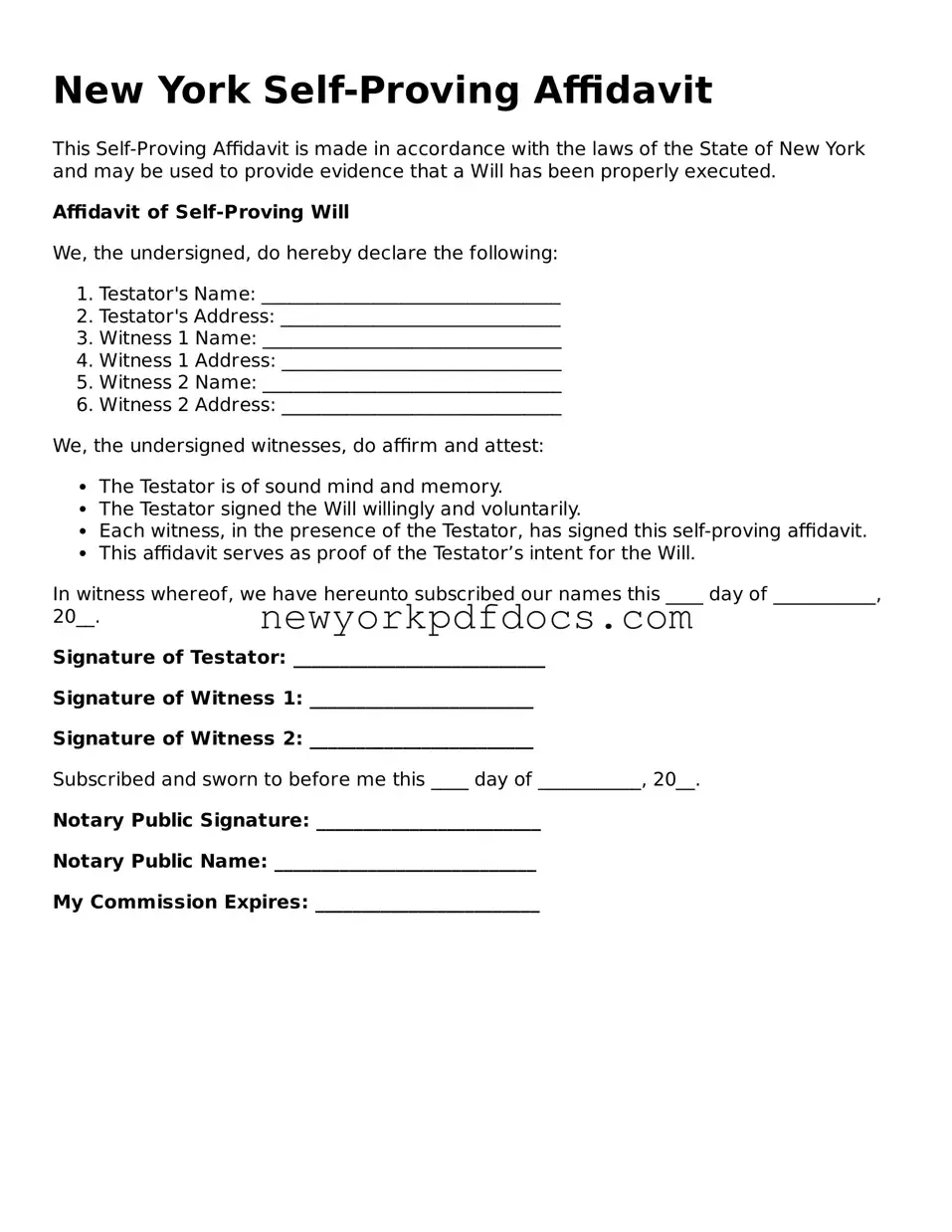Valid Self-Proving Affidavit Document for New York
The New York Self-Proving Affidavit is a legal document that allows a testator's will to be validated without the need for witnesses to appear in court. This form simplifies the probate process by providing evidence that the will was executed properly. Understanding this affidavit is crucial for ensuring that your estate is handled according to your wishes.
Open My Document Now

Valid Self-Proving Affidavit Document for New York
Open My Document Now
Your form isn’t finalized yet
Edit, save, and download Self-Proving Affidavit online with ease.
Open My Document Now
or
⇓ Self-Proving Affidavit PDF
